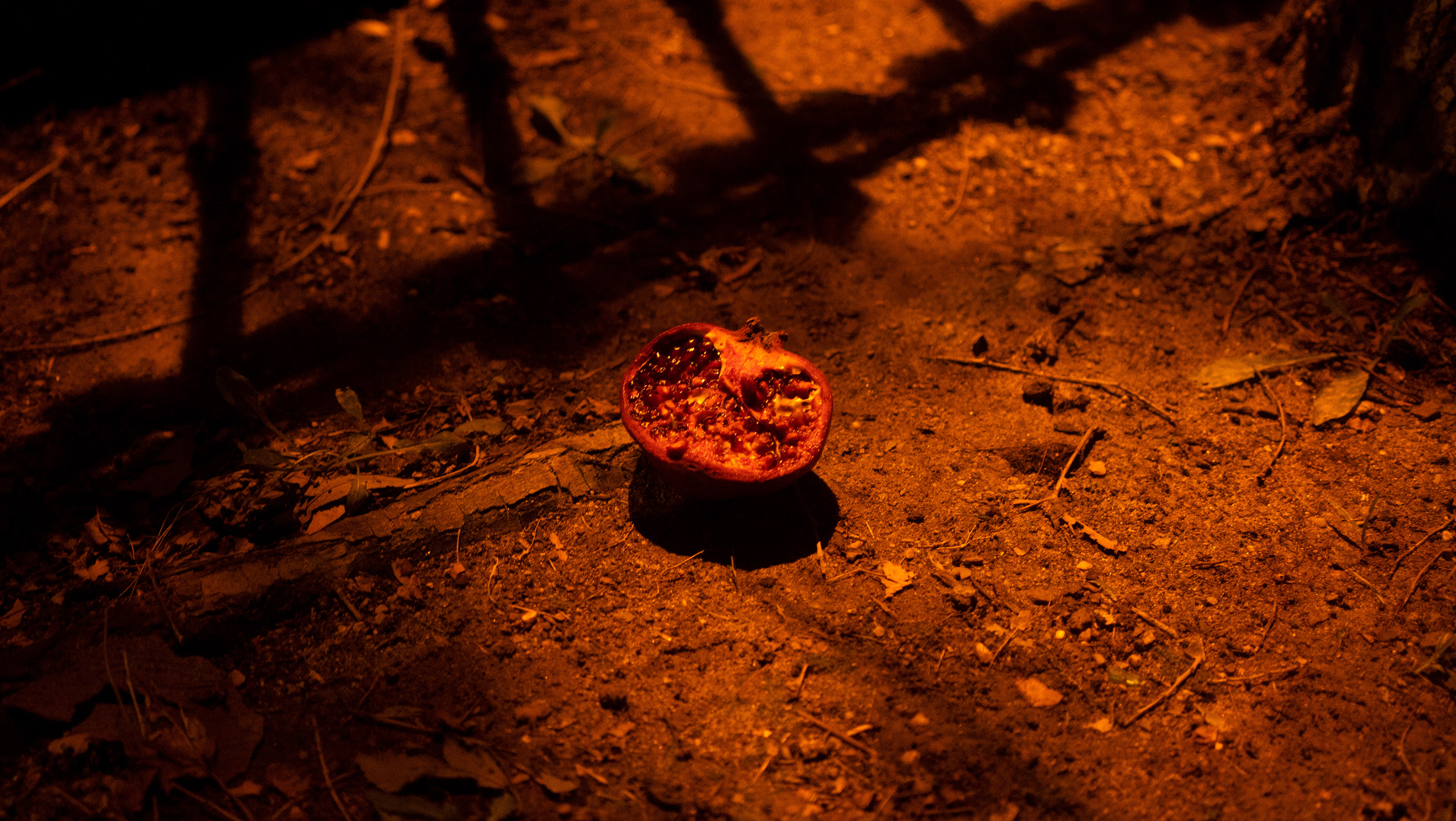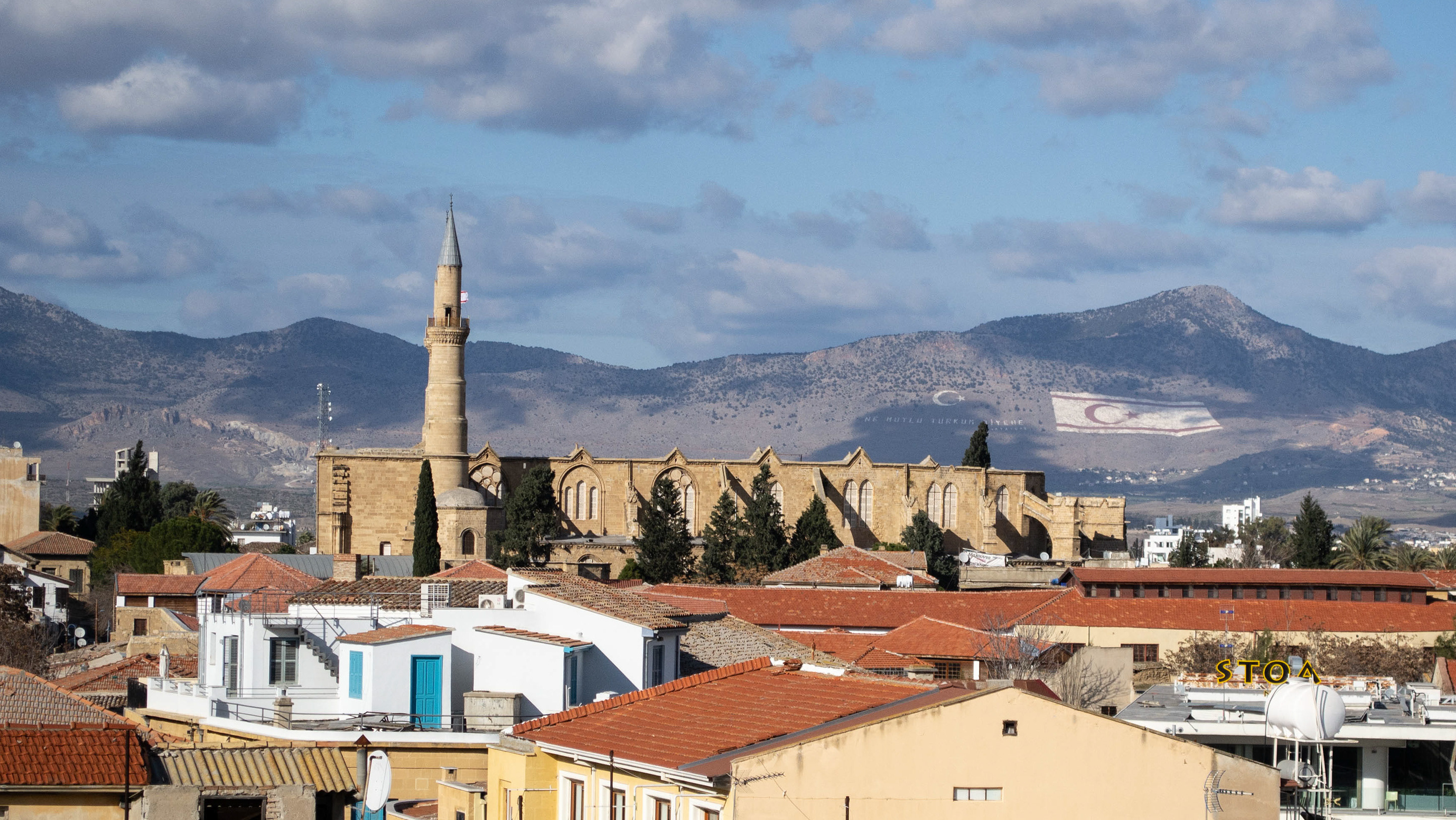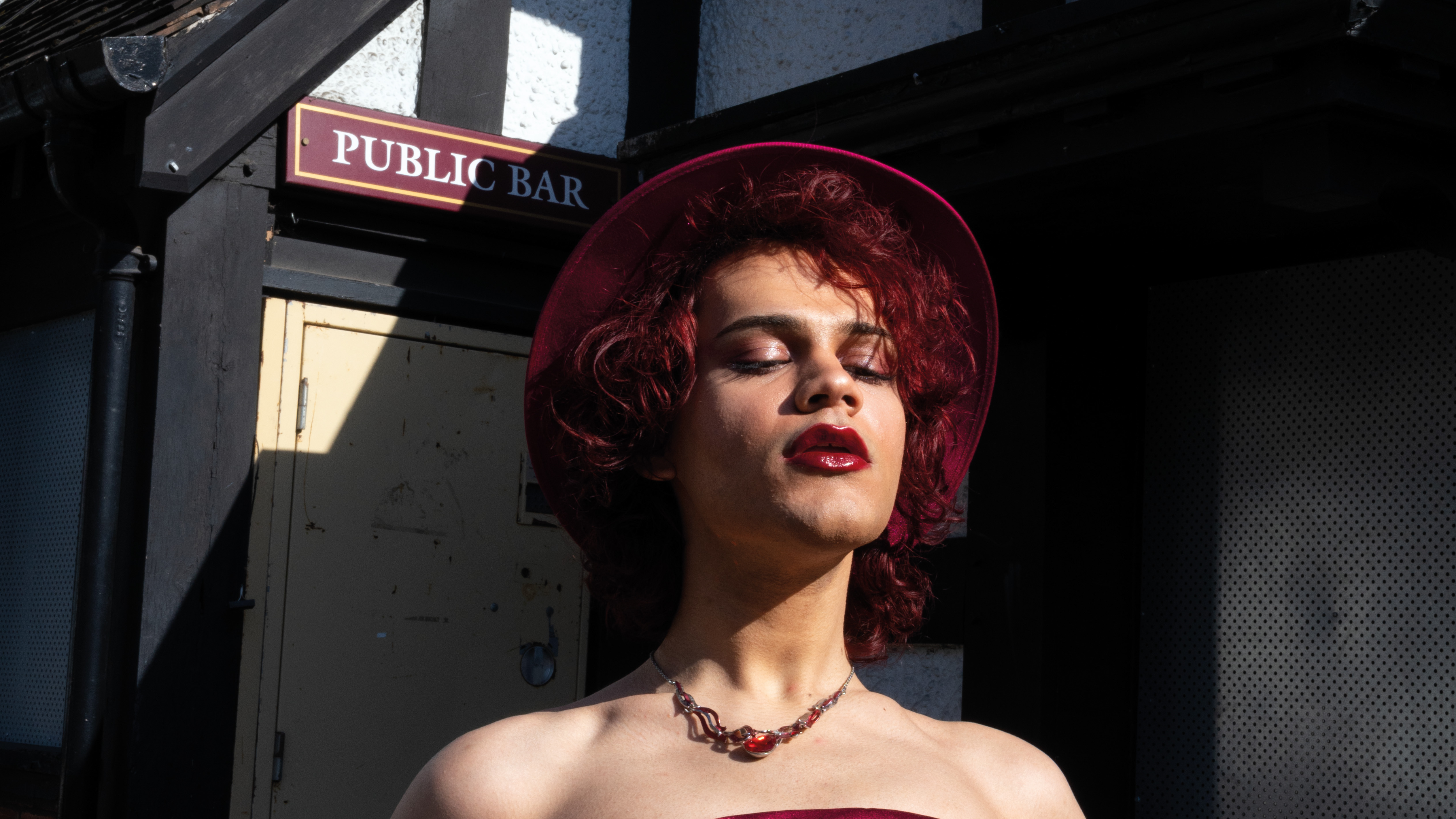My name is Eleni, or Lou — my creative name. I’m an artist who recently moved from Berlin to Athens. Over the past three years, my work has explored what it means to be queer, female, and lesbian, focusing on my project Queering Kagkouras.
The “Kagkouras” is an Athenian subcultural figure representing misogyny, patriarchal entitlement, class struggle, and narcissism. Through my project, I aim to queer and revive this suburban archetype, bringing questions of class and gender to the forefront while challenging its toxic masculinity.
As a femme-presenting LGBTQ+ person in Greece, I rarely face street harassment, but I do experience discrimination simply for being a woman. Athens has a small yet lively queer scene, though it’s not comparable to Berlin’s. Sometimes I feel trapped in a “queer bubble,” frustrated with my own community’s limitations.
On politics: Greece is plagued by corruption and ongoing scandals. The government uses pinkwashing — legalising same-sex marriage for a progressive image while maintaining discrimination in adoption, blood donation, and beyond. I don’t feel constantly unsafe, but being a woman here is already risky; Greece has one of the highest femicide rates in Europe.
On identity: Lesbian identity in Greece is often dismissed or ridiculed. Many still see lesbians and feminists as either invisible or threatening. At the conservatory where I teach, I keep my sexuality private, knowing that families and colleagues can be conservative and view queerness as an “illness.” I try to support queer students and encourage sensitivity among teachers.
During my music studies in Corfu, I was the only woman in my jazz class — a highly male-dominated space where even my teacher called me “Elenitsa,” a diminutive that felt patronising. Most queer students were closeted.
Today, I choose my spaces carefully — bars, cafes, clubs — and live within my own safe bubble. Being both a lesbian and a woman is doubly challenging; lesbians are rarely taken seriously, and I constantly feel the need to prove myself.
Greece remains deeply conservative and Orthodox. Despite progress — queer characters on TV, legalised same-sex marriage — the broader society and church remain resistant. After the marriage law passed, there were even violent homophobic attacks. Change is happening, but slowly.
Lou (she/her)
''I’m a gay man in my thirties, born and raised in Greece with Syrian roots as a second-generation migrant. Over the years, I have worked both in the refugee sector and in the corporate world. Alongside my professional journey, I’ve developed a deep appreciation for the arts — especially dance — which continues to be a source of inspiration and joy. I envision a future world built on equality, inclusion, and safety for all forms of life.
That said, daily life as an LGBTQ+ immigrant in Greece can be challenging at times. My sexuality is not accepted within my family or within Syrian culture more broadly, so it remains a part of me that I often need to keep hidden. However, in contrast, I feel safe and loved among my circle of friends and colleagues. Even so, I still find it difficult to express my more feminine side in public spaces, as people often stare or make comments — clear reminders that diversity is not yet fully embraced in society.
Nevertheless, there are small sparks of hope. Recent progress, such as the legalisation of same-sex marriage and adoption, as well as the presence of openly gay politicians, marks a step forward. Yet, I still feel that LGBTQ+ rights are too often framed within a heteronormative and religious context, which limits the possibility for truly transformative change. Despite this, my greatest source of hope remains the solidarity among people and the collective fight for our rights in the streets.
Still, safety often feels conditional. I usually feel secure as long as I limit the expression of my queerness. I am constantly aware that dressing or behaving in certain ways could attract unwanted attention — or even pose a danger — particularly in some neighborhoods, workplaces, or spaces outside the LGBTQ+ community.
Fortunately, there is a strong and vibrant LGBTQ+ community in Greece. Within it, I feel that my gay identity is seen, respected, and embraced. Yet, queerness and femininity more broadly are still criticised and stigmatised by society at large — and, unfortunately, this stigma can sometimes escalate into acts of violence.
Reflecting on my past, discrimination was more intense during my school years. Back then, classmates would mock me, call me names, and marginalise me simply because of how I spoke or walked. In adulthood, however, I’ve been fortunate to work in environments — particularly within NGOs supporting refugees and immigrants — where colleagues are open and accepting of my identity. That said, this acceptance doesn’t always extend to higher levels of leadership.
As an optimistic person, I try to focus on the positive changes that have taken place over the years — such as the legalisation of same-sex marriage and adoption, and the increasing visibility of LGBTQ+ politicians. At the same time, the rise of the far-right and recent setbacks, like the renewed ban on blood donations from gay people, are deeply concerning. These moments serve as stark reminders that progress is fragile and must be continually defended.''
Naouras (he/him)
''I’m a queer woman in my thirties, working as a medical doctor in Greece. I’ve always been drawn to caring for people, but also to questioning the systems we live in. Politically, I believe in solidarity, equality, and that healthcare and rights should never be privileges for the few.
Life as an LGBTQ+ person in Greece is complicated. Within my close circle of friends and chosen community, I feel loved and free to be myself. In public spaces and at work, however, I remain guarded. People often assume I’m straight, and correcting them isn’t always easy or safe. Visibility comes at a cost — with stares, comments, or subtle hostility reminding me that acceptance is still conditional.
I feel torn about the political situation. While there have been positive steps, like marriage equality, other issues — such as the continued ban on blood donation — feel like regression. The political climate remains largely conservative, and LGBTQ+ rights are often reduced to symbolic gestures rather than driving real structural change. I dream of a country that fights inequality in every space — hospitals, schools, the streets — not just in rhetoric.
When it comes to safety, I can say I feel safe enough, but never completely. I’m not overly concerned about physical violence, but I do think about how we’ll be perceived in public, whether someone will shout something, or how I’ll be judged at work. True safety would mean not having to calculate these risks constantly. Being an outspoken woman only amplifies this burden, and heterosexism remains a daily reality.
I don’t feel that my identity is truly embraced by society. At best, it’s tolerated — provided it stays out of sight. There’s a message of “we don’t mind what you do, just don’t show it too much,” which isn’t acceptance but rather enforced invisibility. As a queer woman, I often feel erased — either oversexualized or ignored altogether.
I have experienced discrimination, both subtle and direct. Sometimes it’s homophobic jokes from colleagues, assumptions from patients about having a husband, or the looks we get for simply holding hands. These moments may seem small in isolation, but they accumulate, and the emotional weight of that is real.
Despite all this, I want to stay hopeful. The younger generation gives me courage — they’re more open and willing to challenge the status quo. Still, progress is slow, and real change will take time. For me, the future of LGBTQ+ rights in Greece must go beyond legislation. It has to be a cultural shift, where being queer is no longer seen as brave or solely political — just normal.''
mARINA (she/her)
''I am Nefeli, a Greek bisexual woman living in Athens and a single mother to a son. My academic and personal interests revolve around sociology, anthropology, gender studies, and feminism in the Global South. Through poetry, I seek to give voice to those who are often silenced — refugees, migrants, and LGBTQ+ individuals. My writing is both personal and political, shaped by the desire to expose how power, identity, and belonging intersect in the everyday.
My experience as an LGBTQ+ person in Greece has largely been shaped by privilege. I grew up in a liberal, politically engaged, middle-class family in central Athens — in an environment that embraced difference and nurtured critical thinking. I came out early and was accepted at home, in schools, universities, and activist circles. Within this microcosm, my queerness was never something to hide. Discrimination has been rare and fleeting in my personal life, allowing me to exist in relative safety and openness.
Still, this comfort has its boundaries. I feel at ease speaking about my sexuality within my own circles — among friends, colleagues, and communities where openness is part of the culture. Yet, in other contexts, I tend to hold back. In meetings with the heterosexual parents of my son’s friends, in professional settings where I am unsure of people’s attitudes, or in large family gatherings with distant relatives, I instinctively become more discreet. It’s not about concealing who I am, but about navigating a social terrain that often demands restraint. I am acutely aware that, in these environments, being a bisexual single mother can still be perceived as unconventional, even inappropriate.
Greek society remains deeply attached to traditional notions of family and womanhood, leaving little space for identities that fall outside the norm. Within this framework, expressing my sexuality openly sometimes feels like an act that requires calculation rather than ease. Visibility becomes situational — an ongoing negotiation between authenticity and safety.
Even so, I remain grounded in the comfort of my chosen community — a space where my identity feels both seen and celebrated. It is within this network of trust and solidarity that I find belonging. Yet, I am constantly reminded that discrimination is not only personal; it is collective. The harm inflicted on one body reveals the vulnerability of all bodies within that shared social space. My sense of safety and identity is inextricably linked to those around me, and their exclusion reflects the broader structures of inequality that shape our collective existence.
Looking to the future, I struggle to be optimistic. As long as the current government remains in power, I fear that LGBTQ+ rights in Greece will stagnate — or regress. Despite occasional symbolic gestures, the state continues to uphold conservative values and prioritises traditional family structures over true inclusivity. This political climate, combined with economic austerity and widening inequality, disproportionately harms those who are already marginalised. Without genuine political will and structural change, the promise of equality in Greece remains an aspiration rather than a reality.''
nEFELI (she/her)


